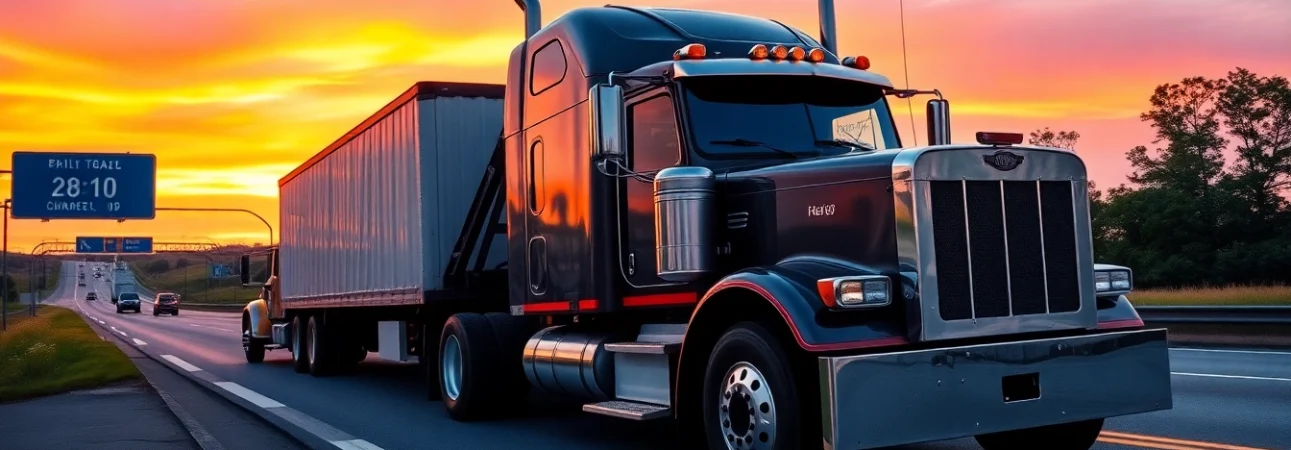Introduction to 24 Hour Big Rig Towing
In the world of transportation, big rigs play a pivotal role in moving goods across long distances. However, just like any vehicle, these heavy-duty trucks can encounter issues that render them immobile. When such situations arise, the need for 24 hour big rig towing services becomes crucial. This article aims to explore the significance of heavy-duty towing, situations that necessitate these services, pricing influences, choosing the right towing company, and best practices for safe towing.
Understanding the Importance of Heavy-Duty Towing
The demand for heavy-duty towing services is increasing primarily due to the sheer size and weight of modern commercial trucks. Regular tow services are not equipped to handle the weight and complexity of these vehicles. Heavy-duty towing services provide the specialized equipment and experienced personnel needed to safely transport large trucks from one location to another.
When to Seek Professional Towing Services
Driving a big rig comes with unique challenges, including mechanical failures, accidents, and environmental hazards. Knowing when to seek professional towing services can save time and reduce damage. Common signs that indicate the need for towing include engine failure, tire blowouts, accidents, or issues with the vehicle’s braking system.
Key Benefits of 24 Hour Big Rig Towing Services
Reliable towing services are vital for ensuring that heavy vehicles are promptly handled during emergencies. Here are some benefits of utilizing 24-hour big rig towing services:
- Accessibility: Availability around the clock allows drivers to receive assistance anytime, which is crucial for long-distance haulers.
- Expertise: Trained professionals understand the complexities involved with heavy-duty vehicles and can handle them properly.
- Specialized Equipment: Towing a big rig necessitates specialized equipment that standard tow trucks lack, reducing the risk of further damage during transport.
Common Scenarios Requiring Big Rig Towing
Towing After an Accident: What to Expect
Accidents are unfortunately common in the trucking industry. If your big rig is involved in a collision, a tow truck will usually arrive to assess the situation. The emergency towing professional will evaluate whether the vehicle is drivable or needs to be towed. Prompt response can help in managing the aftermath of the accident, including notifying insurance companies and determining liability.
Roadside Assistance for Commercial Vehicles
Roadside assistance is specifically geared toward the needs of commercial vehicles. If a driver experiences a breakdown due to mechanical failure, battery issues, or fuel depletion while on the road, calling for immediate assistance can keep the situation under control. Such services often include tire changes, lockout assistance, and fuel delivery, alongside towing when necessary.
Recovering Stuck or Disabled Heavy-Duty Trucks
Another significant scenario that calls for big rig towing is getting a stuck or disabled truck back on the move. Whether it’s due to adverse weather conditions, getting stuck in mud, or a mechanical failure, receiving professional help is essential. Heavy-duty tow trucks are equipped to extract big rigs from tricky situations without causing additional damage.
Factors Influencing Big Rig Towing Prices
Understanding Cost Structures and Fees
The cost of towing a big rig can vary widely based on several factors. Some of these include the distance to be towed, the weight of the vehicle, and the complexity of the towing situation. Additionally, costs may include labor charges and potential fees for specialized services, such as recovery operations or equipment needed for safe towing.
Seasonal Considerations for Towing Services
The time of year can significantly influence towing pricing and availability. During winter months, inclement weather may lead to more accidents and breakdowns, resulting in higher demand for towing services and potentially increased rates. Conversely, during peak travel times such as holidays, additional services may be necessary, thus affecting pricing strategies.
Insurance Coverage and Towing Costs
Understanding what your insurance covers is critical for budgeting towing costs. Many commercial vehicle insurance policies include roadside assistance; however, the coverage specifics may vary. Knowing whether a towing service is included, along with deductible policies, can prevent unexpected expenses during an already stressful situation.
Choosing the Right Towing Company
What to Look for in a Towing Service Provider
Selecting the right towing company involves more than just comparing prices. Look for services that specialize in heavy-duty towing, have a strong reputation, and are licensed and insured. Customer service ratings and responsiveness are also crucial factors to consider when making your choice.
Importance of Certifications and Equipment
Not all towing companies are created equal; hence, their certifications and equipment play a significant role in the quality of service provided. The best towing companies employ certified technicians trained in heavy vehicle recovery and have access to advanced tools and equipment to ensure the safe handling of big rigs.
Reading Reviews and Testimonials
In the digital age, potential customers have a plethora of information at their fingertips. Reading reviews and testimonials from previous clients can provide insight into the reliability and quality of service of a towing company, guiding your decision effectively.
Best Practices for Safe Towing
Preparing Your Vehicle for Towing
Proper preparation is key before a vehicle is towed. Ensuring that equipment is detached, securing any loose items, and emptying the trailer or truck bed helps minimize risks during the towing process. Providing clear communication to the towing crew about the vehicle’s issues can also aid in a smoother operation.
Safety Protocols During the Towing Process
Safety is paramount during towing operations. Confirm that all clips and chains are secured, and that the towing vehicle is properly aligned. It’s advisable to follow established protocols to mitigate hazards that may arise during towing, particularly in busy traffic conditions.
Post-Tow Checklist for Vehicle Owners
After the vehicle has been towed, it’s essential to perform a post-tow inspection. Check for any signs of damage that may have occurred during transport and consult with the towing service provider about potential repairs or follow-up actions needed. This will ensure that the vehicle is safe to operate once it’s back on the road.
